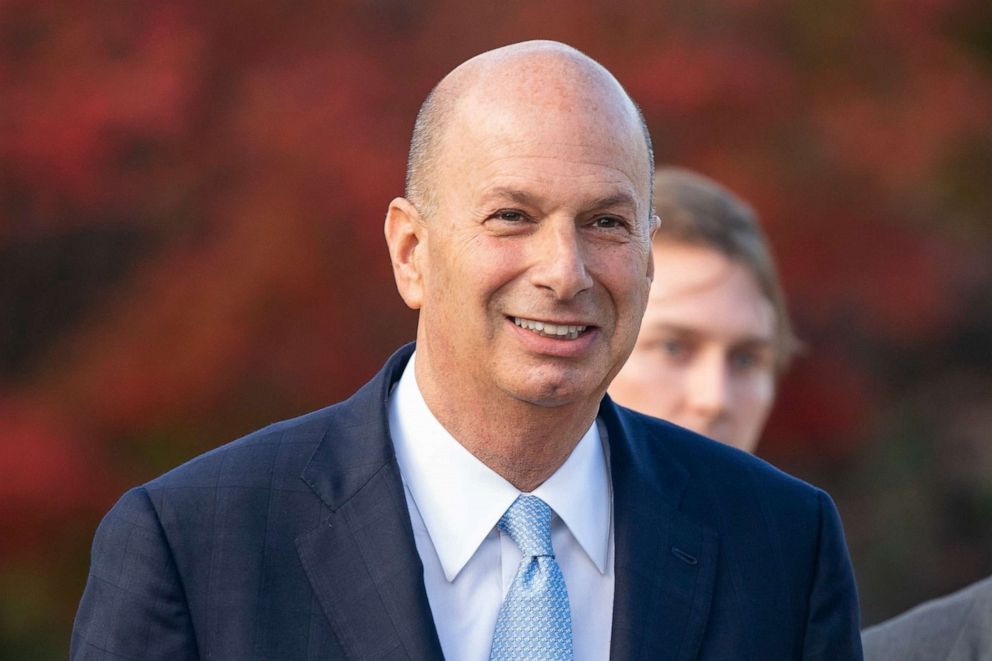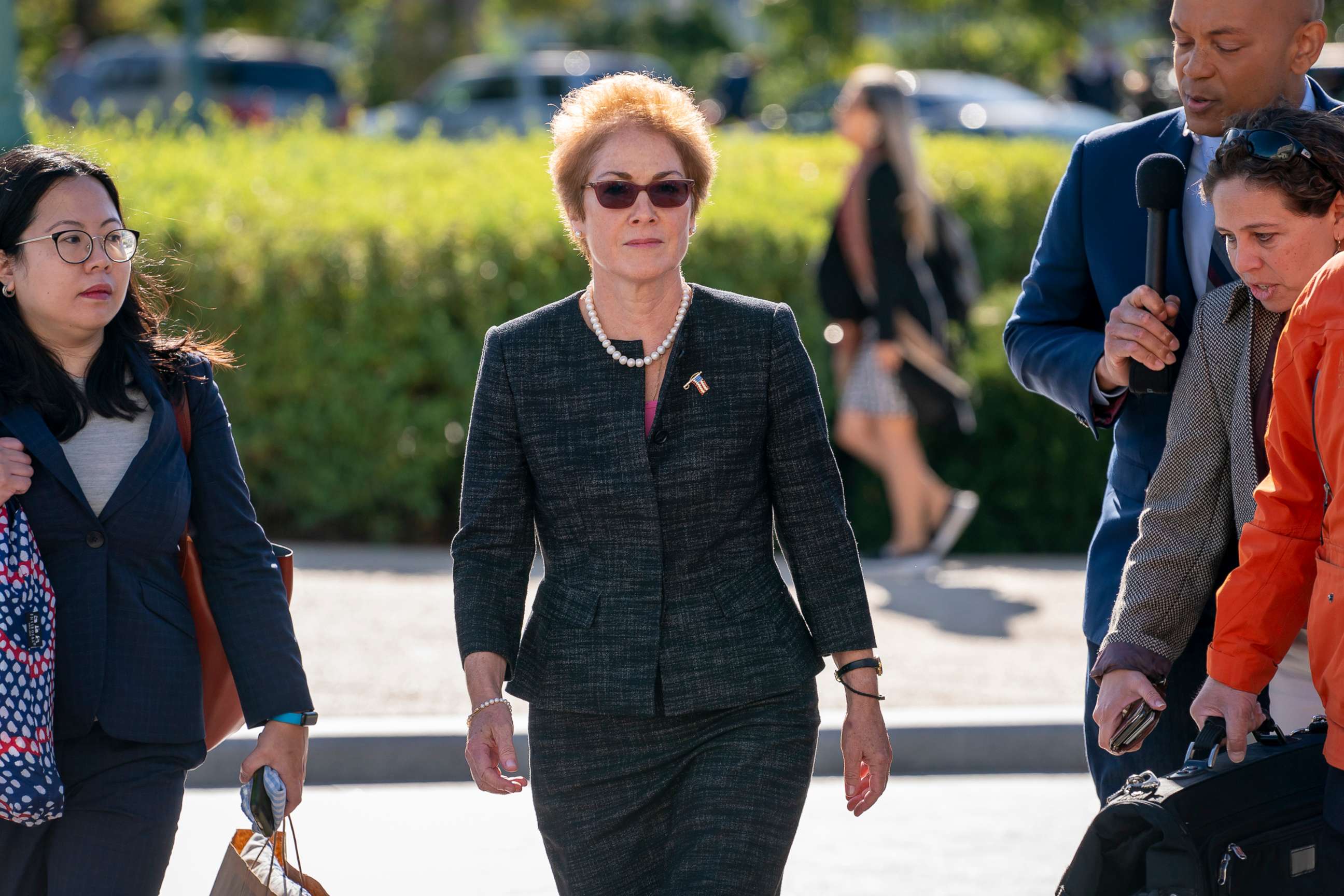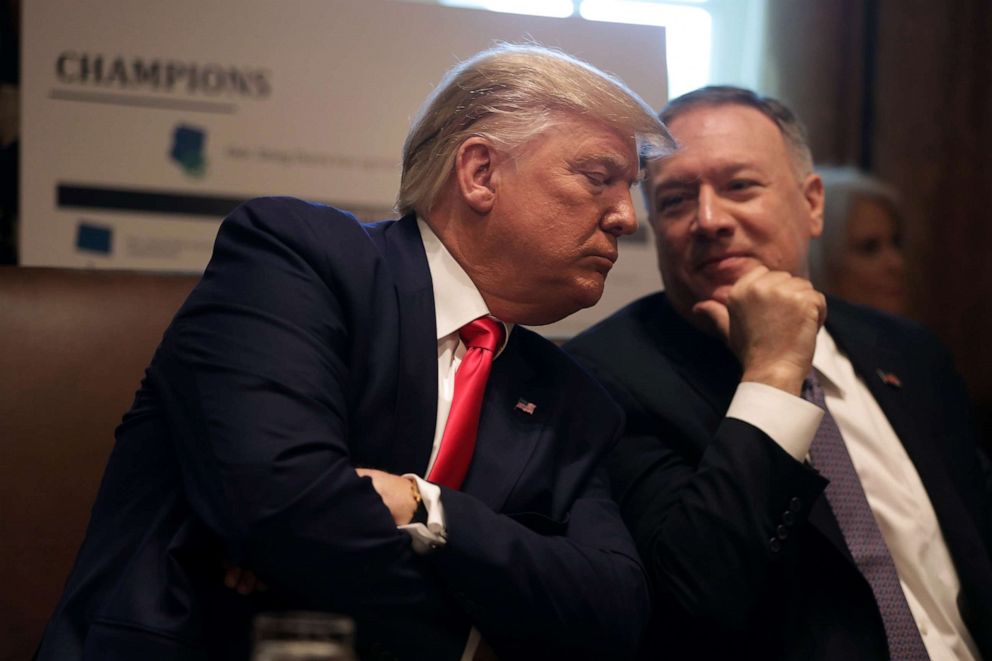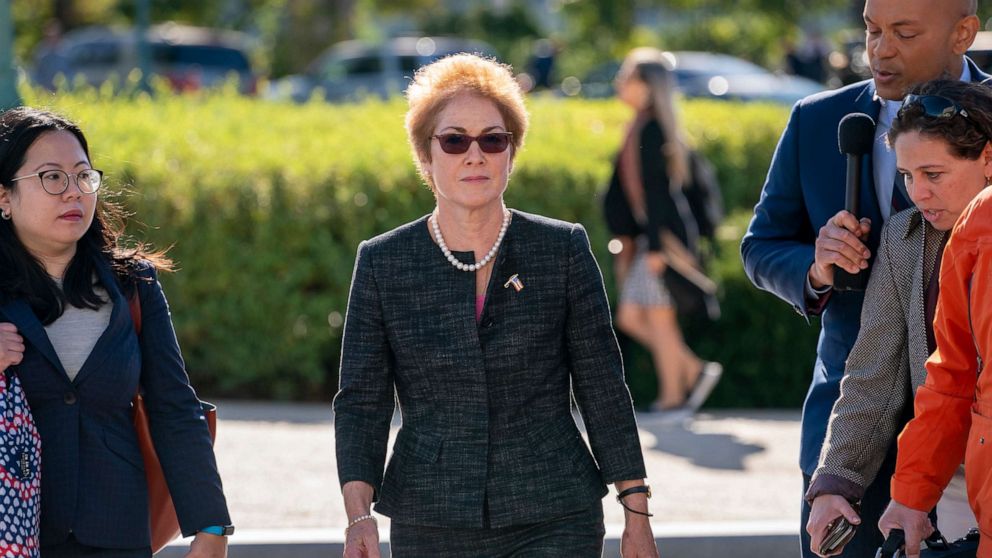State Dept. officials defy White House to testify in impeachment probe
The White House has ordered administration officials not to comply with subpoenas from the three House committees that have launched an impeachment probe against President Donald Trump. For the most part, from the Office of Management and Budget to the Department of Energy to the Vice President's office, officials have abided by that command.
But six current and former officials from the State Department have not. Defying the White House directive and instead complying with the House subpoena, they have each testified about Trump and his personal lawyer Rudy Giuliani's effort to pressure Ukraine's new president to open investigations that would favor him politically, including by withholding $392 million in security assistance and removing the U.S. ambassador to Ukraine.
It's a decision that has won them praise as "heroes" in some corners, or scorned as the "deep state" in others. Former State Department officials tell ABC News these folks are just doing their jobs as nonpartisan career diplomats.
"They're taking a professional risk, and they're doing so for the sake of their public duty," said Ambassador Daniel Fried, a Foreign Service officer and veteran diplomat who served as ambassador to Poland under Bill Clinton, Assistant Secretary of State for Europe under George W. Bush, and special envoy for closing Guantanamo Bay under Barack Obama.

Four of the officials are currently working for the U.S. government and remain on the government payroll: Marie Yovanovitch, who was recalled by Trump from her post as ambassador to Ukraine and now serves as a fellow at Georgetown University; Gordon Sondland, the Republican donor who Trump nominated as ambassador to the European Union; George Kent, who serves as deputy assistant secretary of state for Europe and whose portfolio includes Ukraine; and Bill Taylor, the top diplomat in Kyiv now who was dragged into Giuliani's efforts by Trump appointees.
Former special envoy for Ukraine Kurt Volker was the first official to testify. He told the House Intelligence, Oversight, and Foreign Affairs committees about how he and Sondland facilitated Giuliani's efforts to pressure Ukrainian President Volodymyr Zelenskiy to launch investigations into Burisma -- the Ukrainian energy company where former Vice President Joe Biden's son Hunter sat on the board -- and the 2016 election -- over a conspiracy theory that Ukrainian officials interfered to help Hillary Clinton.
But Volker testified one week after resigning when the extent of his role supporting Giuliani was revealed. He said he was working to help Zelenskiy navigate Trump's wishes and secure a meeting between the two presidents after their July 25 call, where Trump asked him to "do us a favor" and highlighted the 2016 election conspiracy and the Bidens -- an effort that Taylor called "crazy" in text messages turned over to Congress.
Days after Volker, Sondland was scheduled for a deposition, but did not show up. His lawyers said in a statement that while he wanted to testify, he was instructed not to by the State Department and White House. He was later subpoenaed to comply.
Yovanovitch was the first to break the mold among current officials -- instructed not to show up, before being subpoenaed by the House, and then arriving on Capitol Hill. She was recalled from her post in Kyiv in May, two months early after a year-long pressure campaign by Giuliani and his associates to have her removed over unfounded allegations that she badmouthed Trump or blocked Ukrainian investigations into the Democratic Party.
After her testimony, several other officials followed on Capitol Hill after the same order of events -- a letter from the State Department, a subpoena from the House and a decision to abide by the latter. Two more career diplomats are scheduled for depositions next: Philip Reeker, the acting assistant secretary for Europe;, and Suriya Jayanti, a Foreign Service officer based in Kyiv.
"It's very hard now that the parade has begun for somebody to suddenly stop it," said a former senior State Department official, adding, "They're inspired by the example of Yovanovitch."

On Oct. 14, there was Fiona Hill, the Russia expert on Trump's National Security Council who had departed the administration days before the July 25 call. She is, to date, the only White House official, former or current, to comply with a House subpoena.
The next day, Kent -- who was informing senior State Department officials that what he said was a "fake news driven smear campaign" against Yovanovitch -- testified about Giuliani's role pushing a Ukraine policy that benefited Trump personally outside of formal channels. A veteran diplomat who served as ambassador to four countries, Ambassador Michael McKinley appeared for testimony the following day, less than a week after resigning from the department as a senior adviser to Secretary of State Mike Pompeo. He expressed concern about the attacks against Yovanovitch and Pompeo's silence on the matter.
After those five current and former officials showed up, Sondland testified last Thursday.
On Wednesday, Taylor became the latest in the list, appearing after being subpoenaed. His testimony will be critical to understanding what Volker and Sondland were doing and how Taylor understood it.
In Kent's opening statement, which was obtained by ABC News, he noted that there could be legal trouble for him, and other officials, telling the committees, "I have been instructed by my employer, the United States Department of State, not to appear. I do not know the Department of State's views on disregarding that order."
The State Department has not responded to multiple requests for comment on that question, but Pompeo has expressed concern that these officials may answer questions in a way that reveals classified information or violates executive privilege -- the right of the president and other executive branch officials to keep certain communications confidential.
"This has been unfair to the nth degree. We've got officers going up there to testify about important security-related matters without a State Department lawyer in the room," Pompeo told ABC News chief anchor George Stephanopoulos on "This Week" Sunday.
But the officials could also open themselves up to charges of contempt or obstruction in the House's impeachment inquiry if they did not show up.
Caught between those two competing jurisdictions, Kent's lawyers at least pointed to a line in the Foreign Service Act, which among other things, governs how Foreign Service officers behave and forbids "the withholding of information from the Congress or the taking of any action against a member of the Service who discloses information to the Congress."

Still, even if there are no legal consequences, there could be more personal ramifications, like ad hominem attacks or professional retaliation.
Allies of the president have already called the State Department part of the conspiratorial "deep state" that is determined to undermine his presidency. Yovanovitch and Kent have already been smeared in conservative media circles.
"Republicans in the Congress should be asked: Why have you allowed the State Department to become an arm of the Democratic Party?" conservative commentator Laura Ingraham tweeted Sunday.
At the White House, acting chief of staff Mick Mulvaney blasted these officials Thursday as "a group of mostly career bureaucrats who are saying, ‘You know what? I don’t like President Trump’s politics, so I’m going to participate in this witch hunt that they’re undertaking on the Hill.'"
Those accusations could also mean professional repercussions, especially if Trump wins reelection next November, including a worse assignment the next time around or withholding a promotion. While there are avenues for career officials to protest or seek recourse for that, including requesting a State Department inspector general investigation, that may be too late, with their career path already derailed. There have already been two IG investigations into that kind of political retaliation, one of which was completed in August.
Some actions could be outside of the department's control, too, including a senator blocking an official's nomination in the Senate.
Pompeo said Sunday he disagreed with Mulvaney and said he hoped "those officers who go to Capitol Hill will speak truthfully, that they'll speak completely," but there are concerns about how he will respond, especially given his recent attack on Bill Burns, a veteran diplomat who served under Republican and Democratic administrations.
In addition to personal and professional costs, there is a steep legal cost that each official likely has to pay out of pocket, as the Washington, D.C., law firms that specialize in this kind of national security issues are not cheap.




